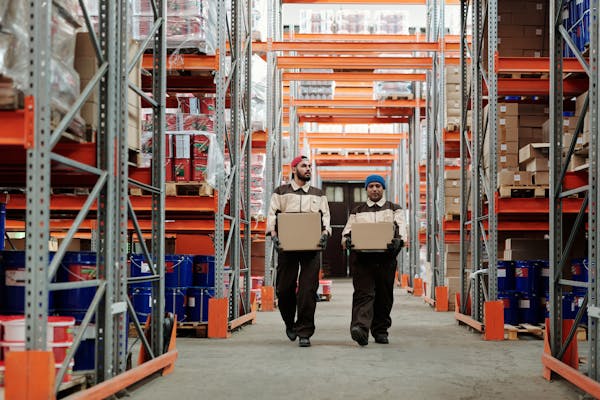A European startup built a 400-square-foot concrete home with a 3D printer in 5 weeks — see inside
[ad_1]

-
Danish startup 3DCP Group has unveiled its first build in Denmark: a 3D-printed tiny home.
-
The home was completed in five weeks but the printer was only active for 22 hours.
-
See inside the almost 400-square-foot concrete home attracting global visitors.
Europe has welcomed its latest 3D-printed home.
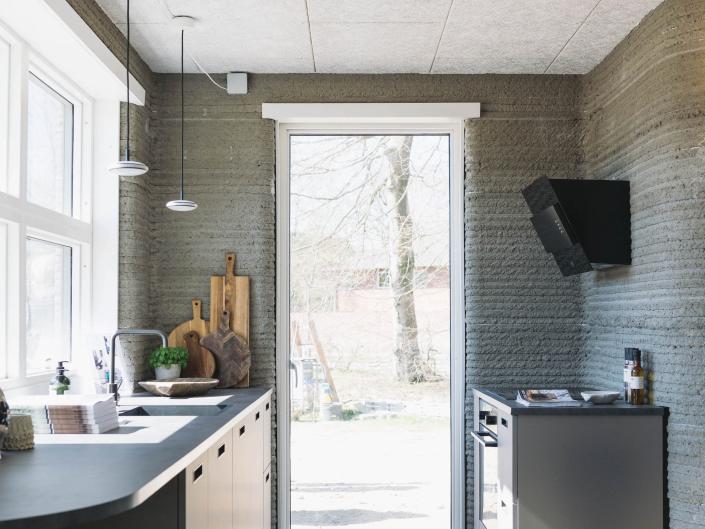
And this time, it’s fun-sized.

The 3D printing home construction has gained popularity over the last few years as startups like 3DCP Group, the creator of this new tiny home, continue to explore the alternative to traditional homebuilding.

Printing buildings may seem like a futuristic concept straight out of “The Jetsons,” but the technology is already viable and churning out houses.

Buildings made using 3D printers now exist around the world, from a luxury home in Austin, Texas …

Source: Insider
… to a school building in Madagascar …

Source: BBC
… to this new tiny home in Denmark, named the House 1.0.

Europe is no stranger to 3D-printed abodes.

In 2021, a couple moved into a printed concrete home in Eindhoven in the Netherlands for about $1,400 a month.
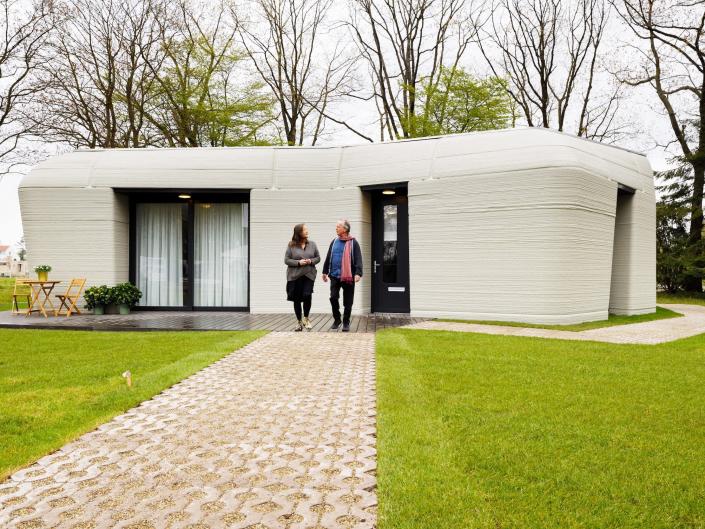
Source: Insider
But unlike the 1,012-square-foot home in the Netherlands, 3DCP Group’s new build in Denmark stands at a petite 398 square-feet.

The tiny but mighty home was 3DCP Group’s “proof of concept” to show the municipality and investors that the technology can create livable buildings in the region’s cold and wet climate.

And the project — the startup’s first build — was a success, Mikkel Brich, the cofounder and CEO of 3DCP Group, told Insider.

“It doesn’t look that impressive when you drive past it on the road, but actually it is quite a huge leap for the construction industry and the future of construction,” Brich said.
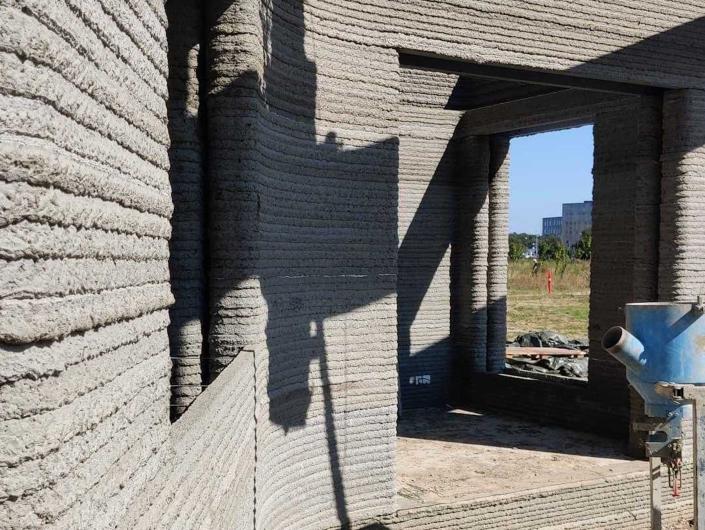
To create the little living unit, 3DCP employed neighboring Danish construction-tech company COBOD’s BOD2 printer, the same system Habita
t for Humanity used to build its home in Virginia.

Source: Insider
Unlike most traditional construction projects, House 1.0 didn’t take years or even months to plan.

Instead, because the startup needed to borrow COBOD employees with a background in 3D printing, 3DCP Group only had five weeks to design and build the home.

The team worked 18 hour days to complete the project.

But during the five-week period of intensive work, the printer was only active for 22 hours.
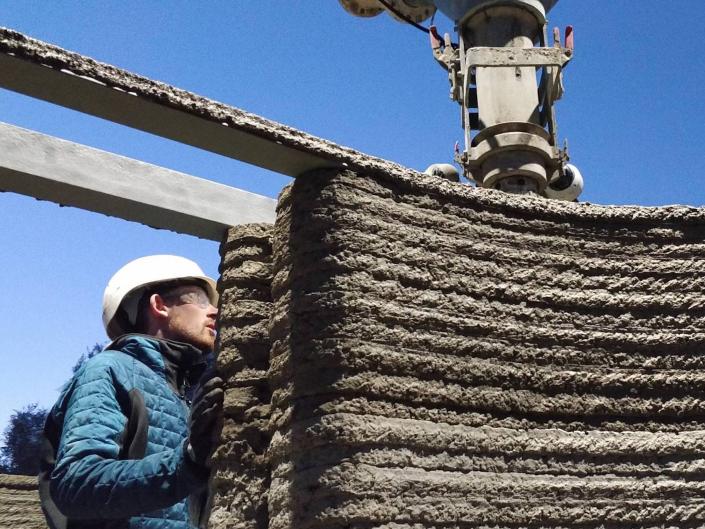
Using a 3D printer in lieu of traditional homebuilding methods allows companies to build homes more quickly and efficiently.
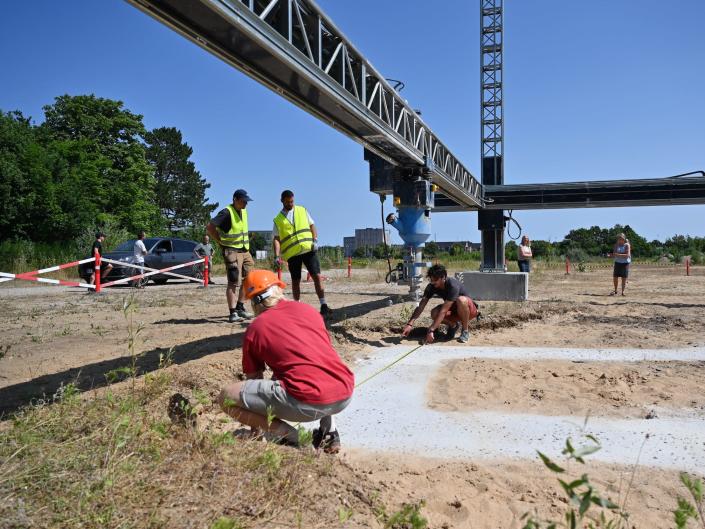
Necessities like electrical wiring and plumbing were completed while the home was being printed.
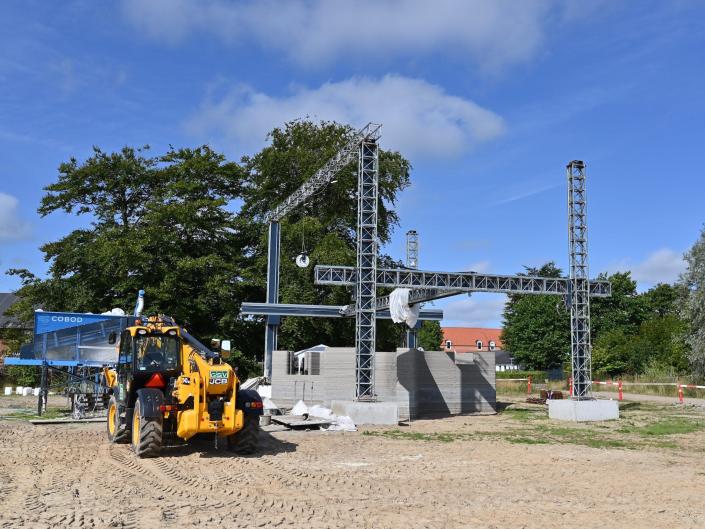
And because the printing system is flexible, the team was able to redraw and redesign the home as it was being printed.
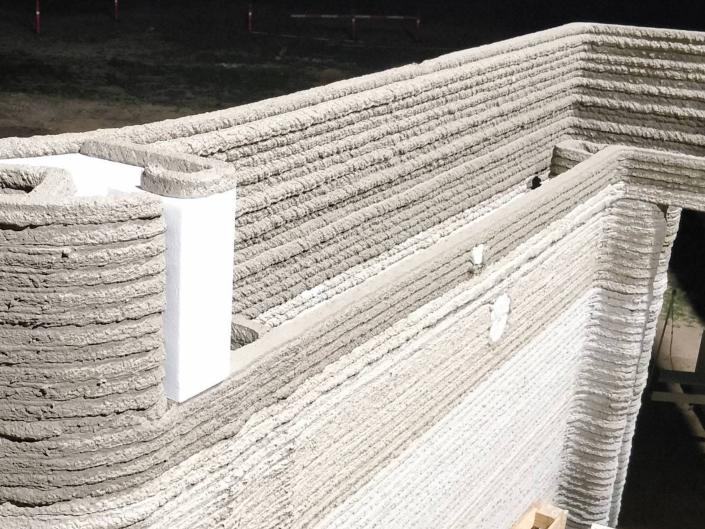
Less than a full day of printing may seem fast.
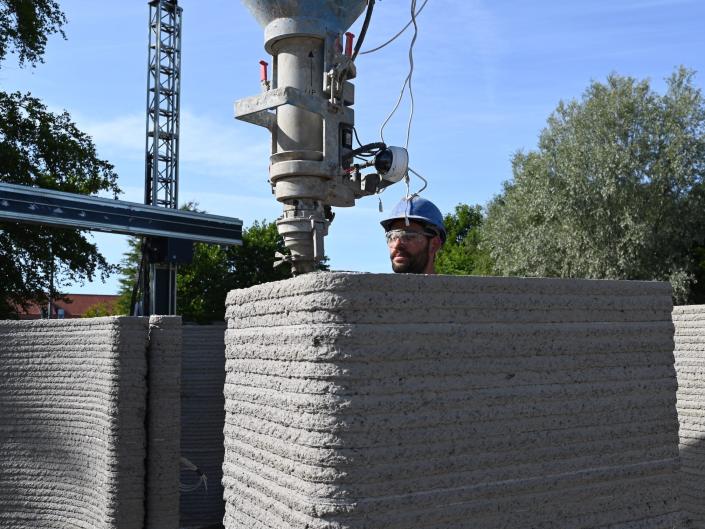
But according to Brich, the entire unit could’ve been printed within 10 hours if the building didn’t have to comply with Danish construction regulations.
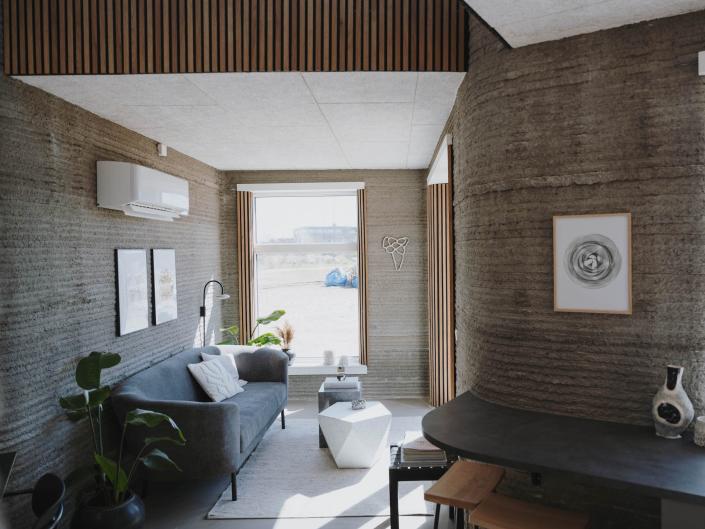
Despite the fast turnaround time and long workdays, the project “went above all expectations” and even created several firsts for the budding construction-tech industry.

House 1.0 is topped with the world’s first 3D-printed roof …
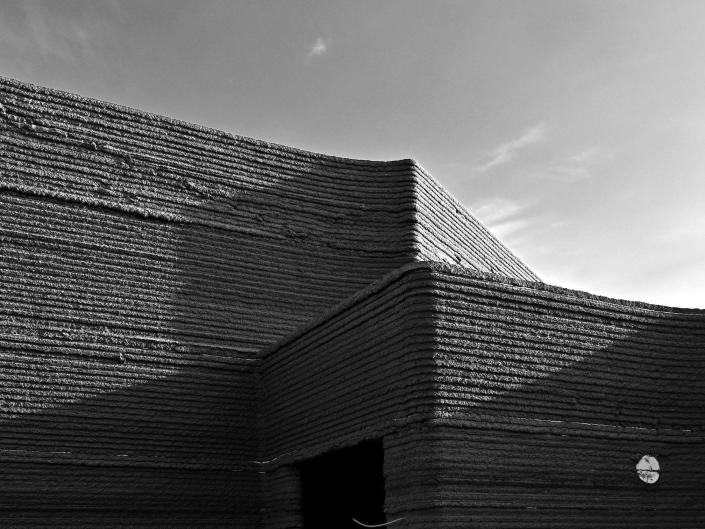
… and is the first unit to be printed with actual concrete instead of a proprietary mix, according to Brich.
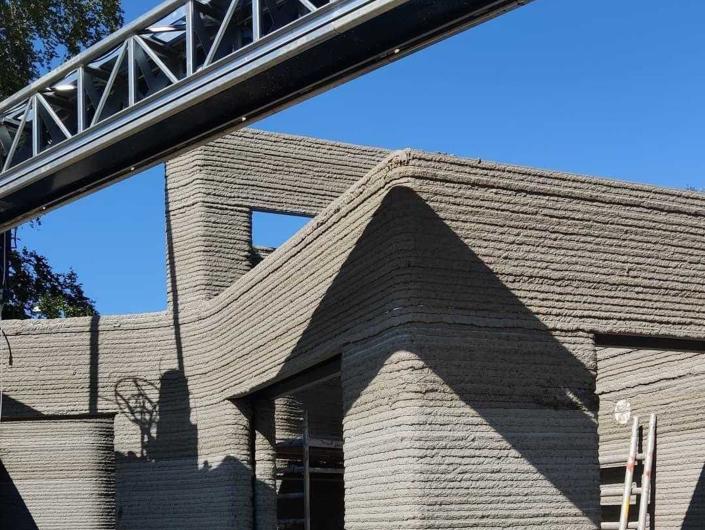
“I’ve cried on site probably 10 or 15 times. We are the first doing this so stuff will break,” Brich said, noting that the concrete mix broke the 3D printer’s pump three times during the project.

Building this one-of-a-kind home was a community effort.

Locals offered plenty of complimentary help and supplies for the project, including concrete, electrical work, manpower, and the printer.

Brich estimates the tiny home would’ve cost around $100,000 to create if it weren’t for all of this complimentary aid.

And to his surprise, the tiny home has since become a global success.
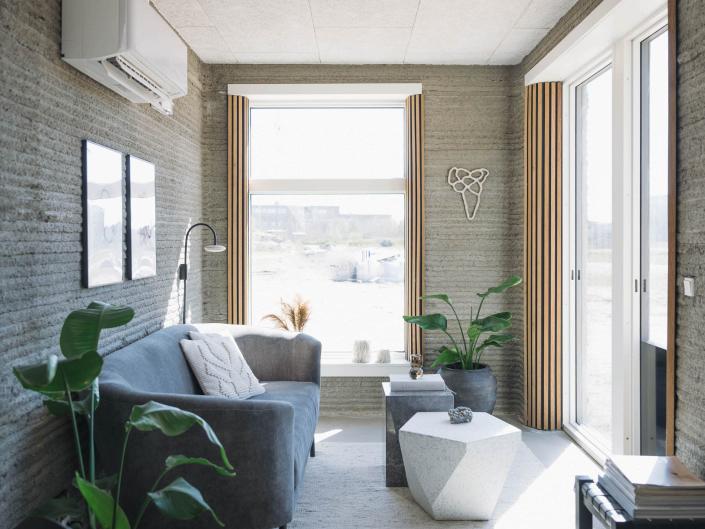
The house was completed in March and recently opened to an excited public with visitors flying in from countries like the US, Singapore, Australia, and Guatemala just to see the tiny home.

“We are tapping into the fascination with the future,” Brich said. “It’s almost science fiction.
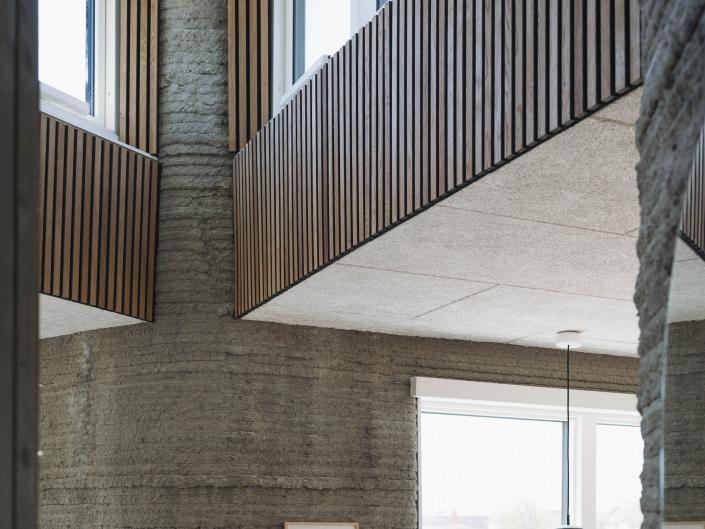
Inside, the building looks unlike any traditional tiny house.

It’s filled with curved walls that look like piped icing on a cake, a look difficult to create without a printer.
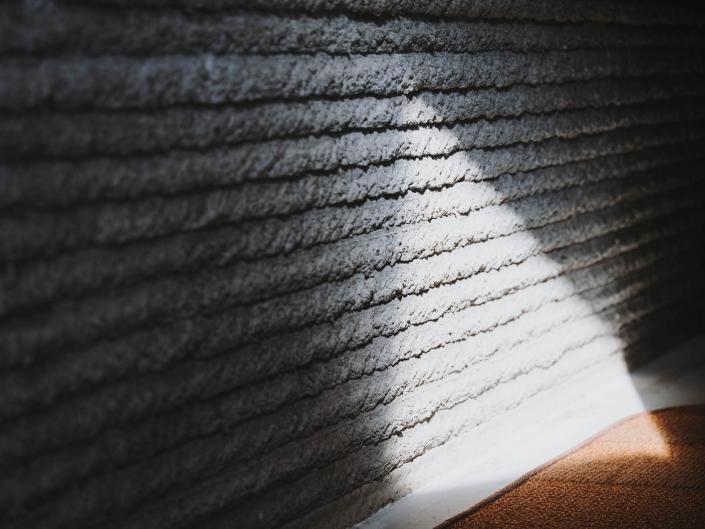
This distinctive appearance, combined with the efficacy of the printer, is why Brich and other 3D printing enthusiasts believe the tech can create unique homes more efficiently and inexpensively compared to traditional homebuilding methods.

“The printer doesn’t have a union. It doesn’t need a smoke break,” Brich said.

These 3D printing devotees are making bold promises about the future of home construction, but the concept is still relatively nascent …
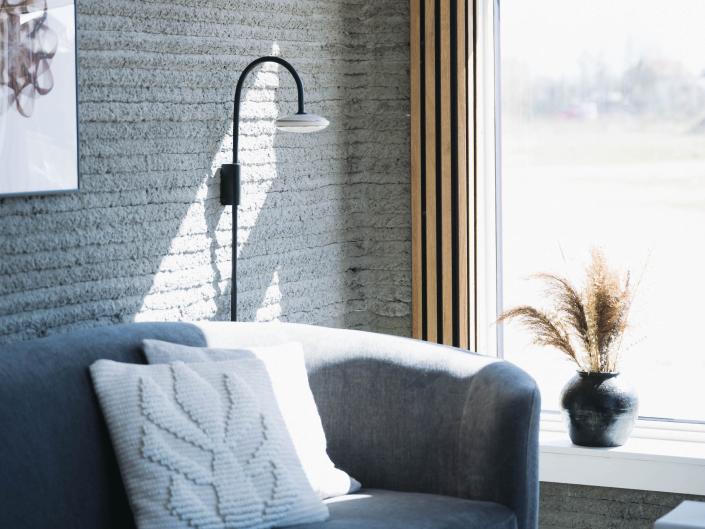
… which means the construction technique still isn’t as environmentally friendly or affordable as it could be.

However, in the next five to 10 years, Brich believe this printing system could cut the price of homes by 50%.
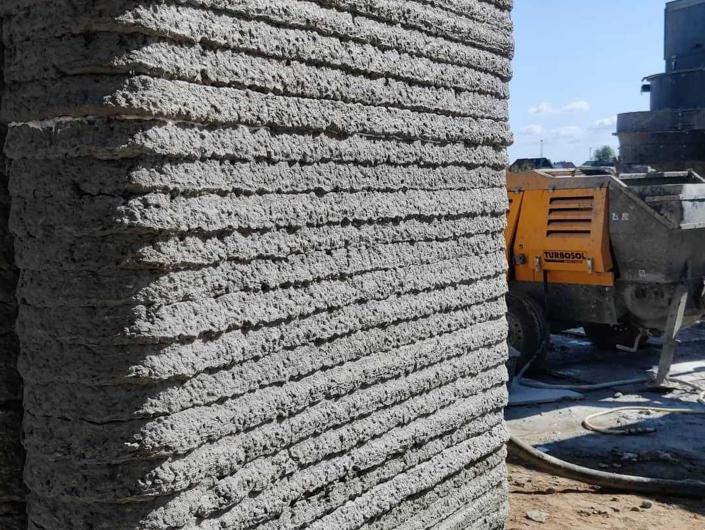
Until then, 3DCP isn’t stopping at tiny homes.

It’s now working with the municipality to build 3D-printed student housing and a common building.

The project isn’t official yet, but when it’s confirmed, it could “really push the boundary for what you can do with 3D print,” Brich says. “It’s going to take 3D printing to the next level.”

Read the original article on Business Insider
[ad_2]
Source link

